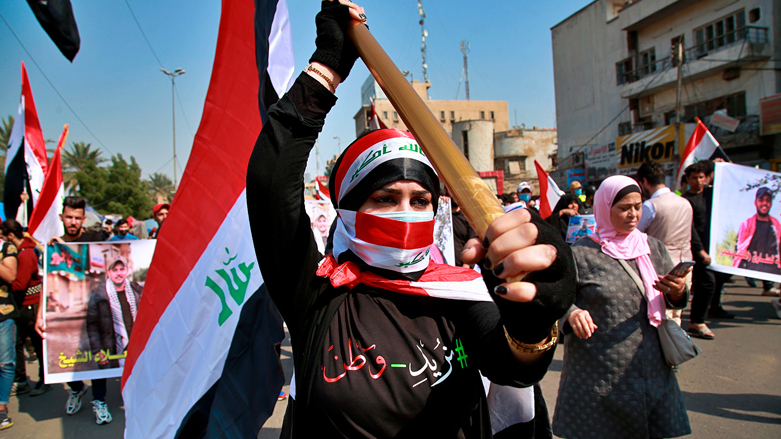Iraqi government formation delayed by deep disputes among Shiite parties
“Maliki advised the SCF political parties not to let the SCF’s internal disputes leak out to the media.”

ERBIL (Kurdistan 24) –The Shiite Coordination Framework (SCF) is close to nominating a candidate for Iraq’s next prime minister, read a statement by the media office of the head of the State of Law coalition Nouri Al-Maliki on Monday.
The statement pointed out that the political parties under the pro-Iran SCF have held a series of meetings and discussed several mechanisms through which they can nominate a candidate for the premiership and form the government.
However, a prominent member of the SCF revealed that the SCF meetings were not fruitful.
“The disputes among the SCF political parties are deepening, and all the meetings they recently held didn’t lead to any agreement,” Hussein Kinani told Kurdistan 24 on Monday. “Maliki advised the SCF political parties not to let the SCF’s internal disputes leak out to the media.”
Kinani revealed that “the SCF leaders decided to publicly accuse the Kurds of being the reason behind not forming the government by citing the Kurdistan Democratic Party (KDP) and the Patriotic Union of Kurdistan’s (PUK) dispute over nominating a presidential candidate.”
On Monday, the SCF called on the KDP and the PUK to agree on one candidate for Iraq’s next president.
“The elected president nominates the next Iraq’s prime minister; that is why the KDP and PUK must agree on a candidate for the presidency,” SCF parliament member Mahdi Taqi Amirly told local media.
“It’s impossible for the parliament to meet before having the KDP and PUK agree on a presidential candidate,” he added.
Read More: KDP and PUK need to agree on a presidential candidate: Shiite Coordination Framework
The Shiite parties of the SCF are set to meet after Eid al-Adha sometime later this week or early next week to have further discussions over selecting a candidate for Iraq’s next prime minister.
Hours after Maliki’s statement, Hadi Al-Amiri, the head of the Fatah Alliance, a major Shiite political party within the SCF, stated that his party would not participate in the incoming Iraqi government and that he would not nominate himself for prime minister. However, he affirmed that his party would support the SCF’s candidate.
Shiite leaders Haider al-Abadi, head of the Victory Party, and Ammar al-Hakim, head of the al-Hikma party, have also announced that they will not participate in the incoming Iraqi government.
Following the mass resignation of Sadrists from the Iraqi parliament and their return to the street, SCF leaders feared Muqtada al-Sadr’s response to any step they would make toward government formation.
Sadr is currently busy organizing a mass prayer in the Iraqi capital Baghdad scheduled for July 15. On Monday, his office issued a statement outlining details and rules on how the prayer will be held and what the participants should do.
The regulations state that the Iraqi flag is the only flag allowed, and participants are not allowed carry weapons.
Political observers warned that the upcoming July 15 prayer might lead to a significant change in the overall political process in Iraq. Iraq has failed to form a government since the October election and is grappling with a major economic crisis. Against this backdrop, all options are now open for angry people fed up with the corruption of the political elites.